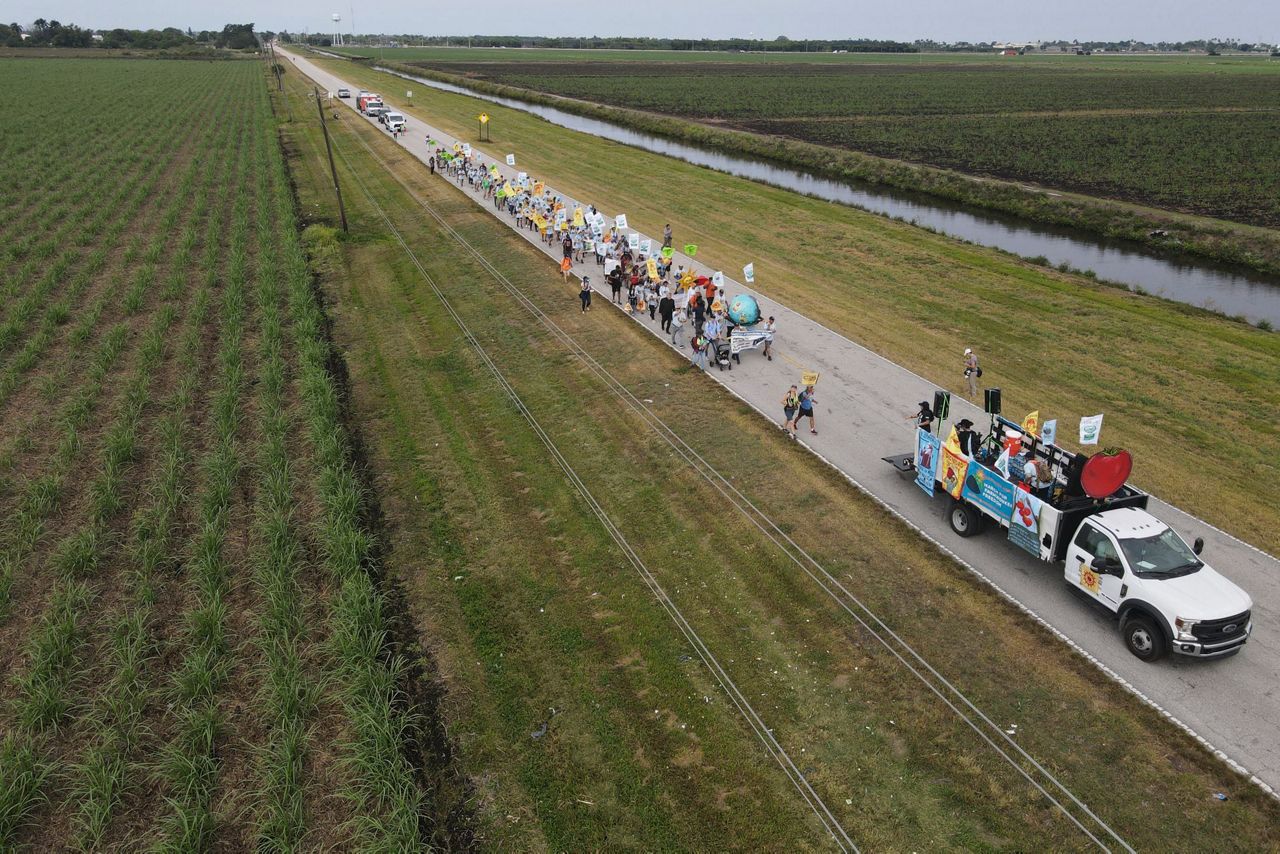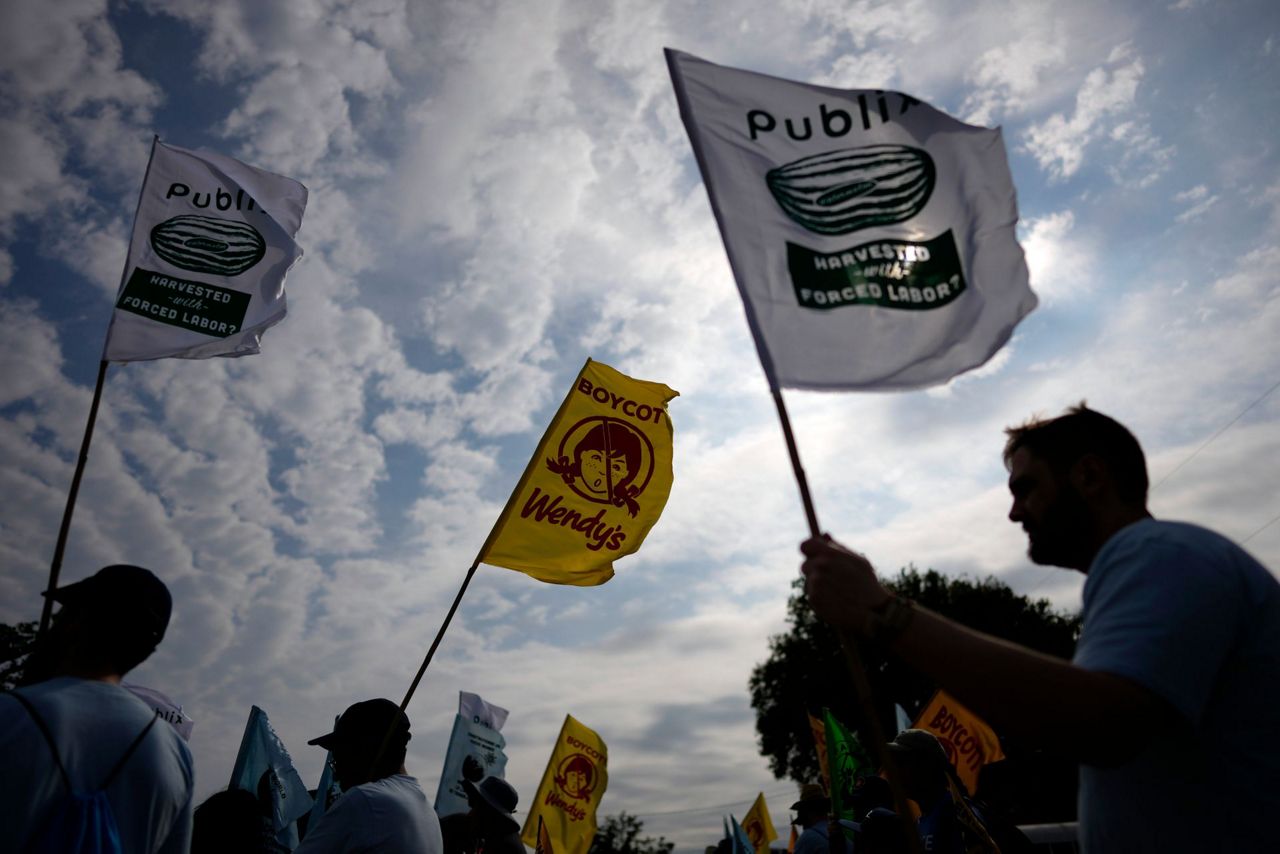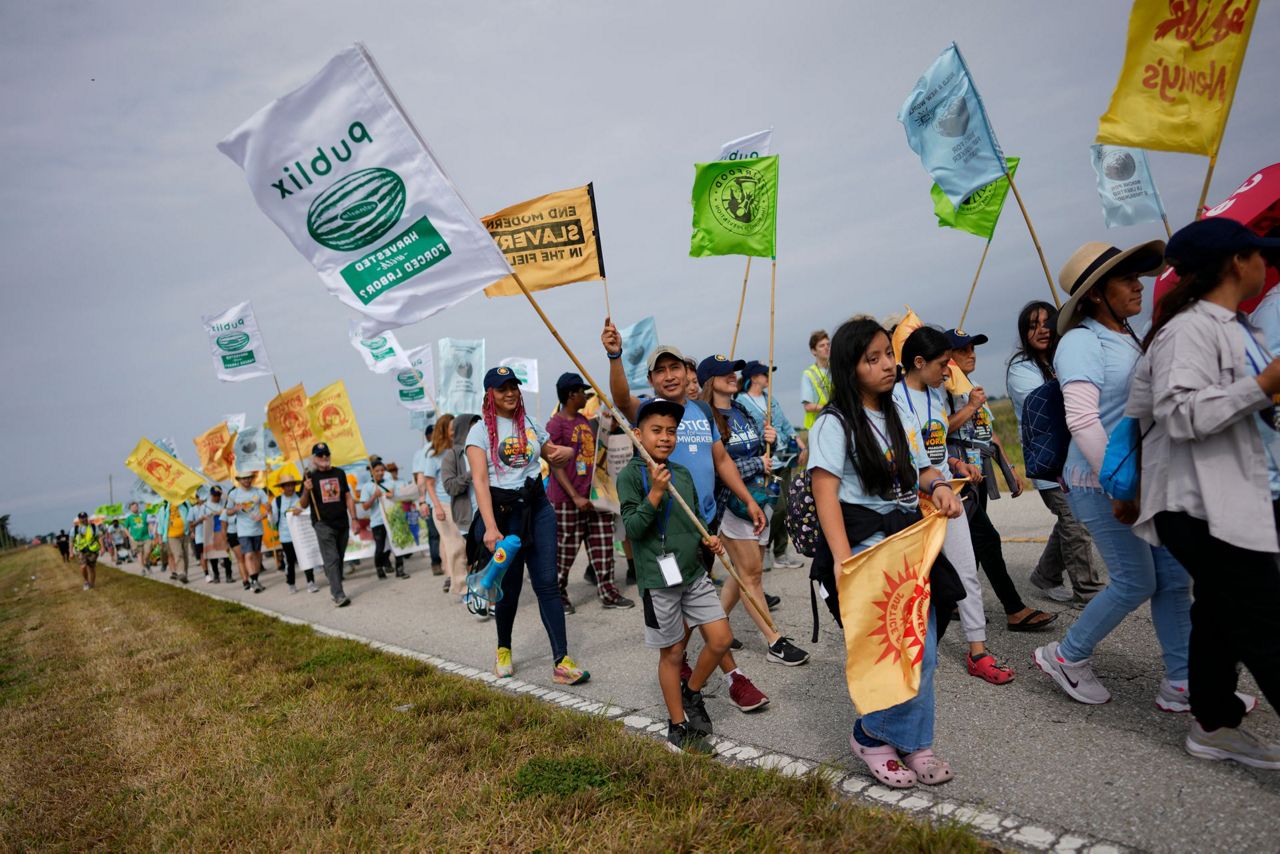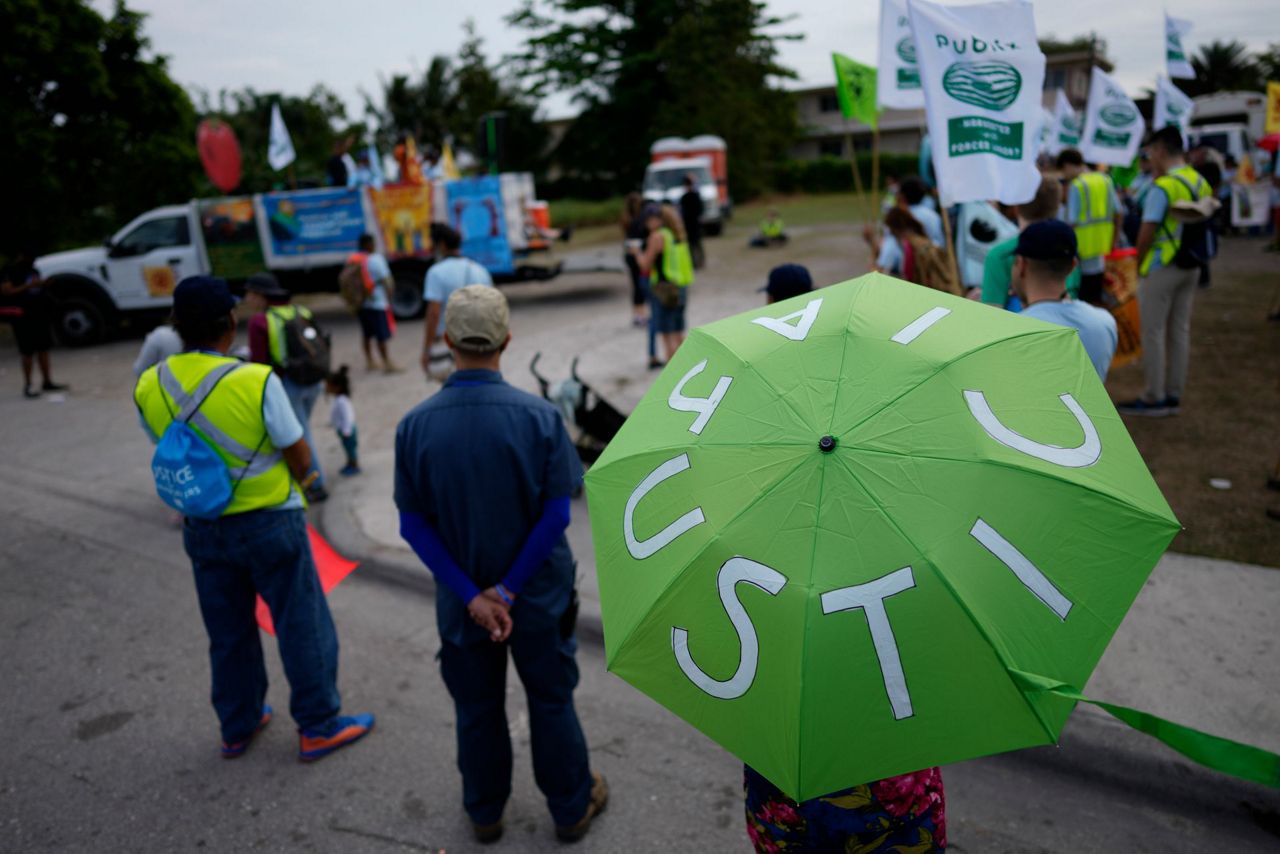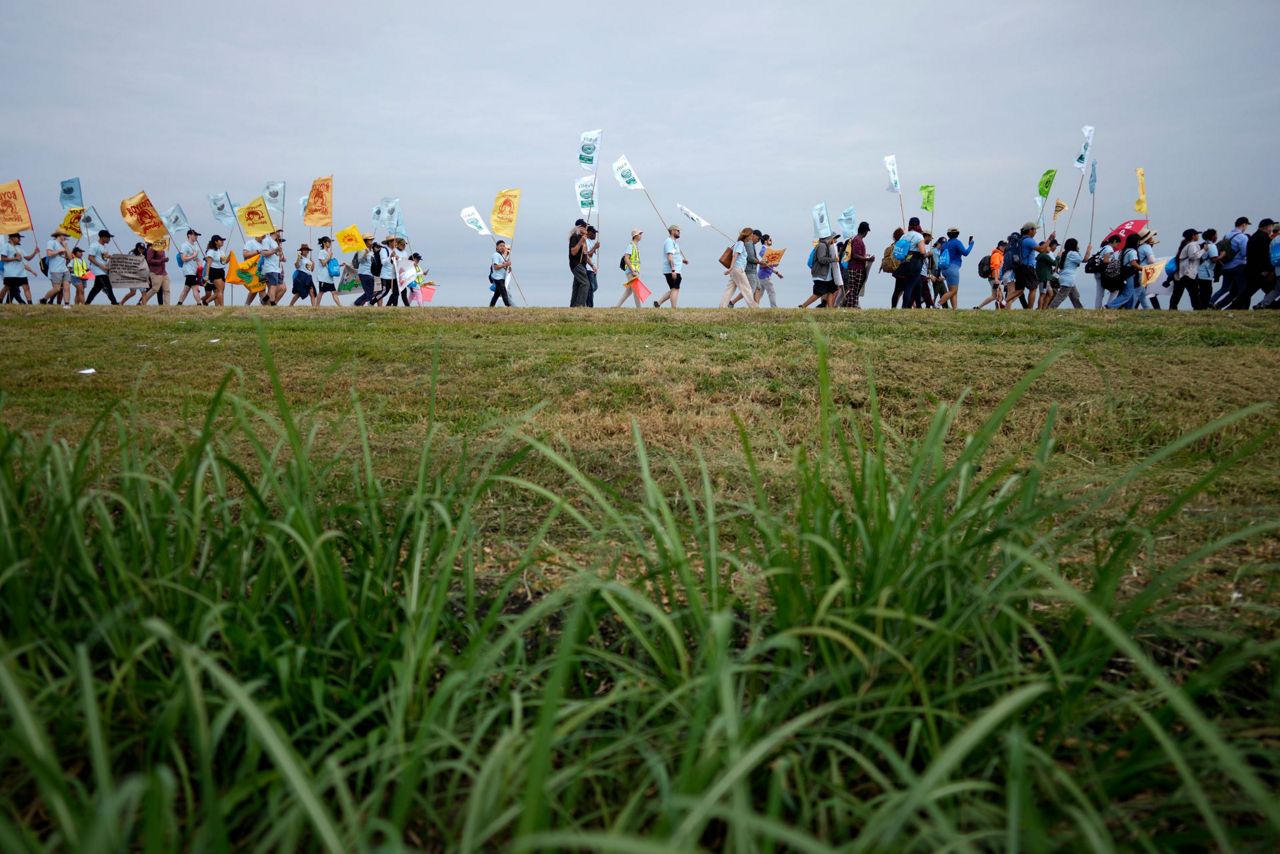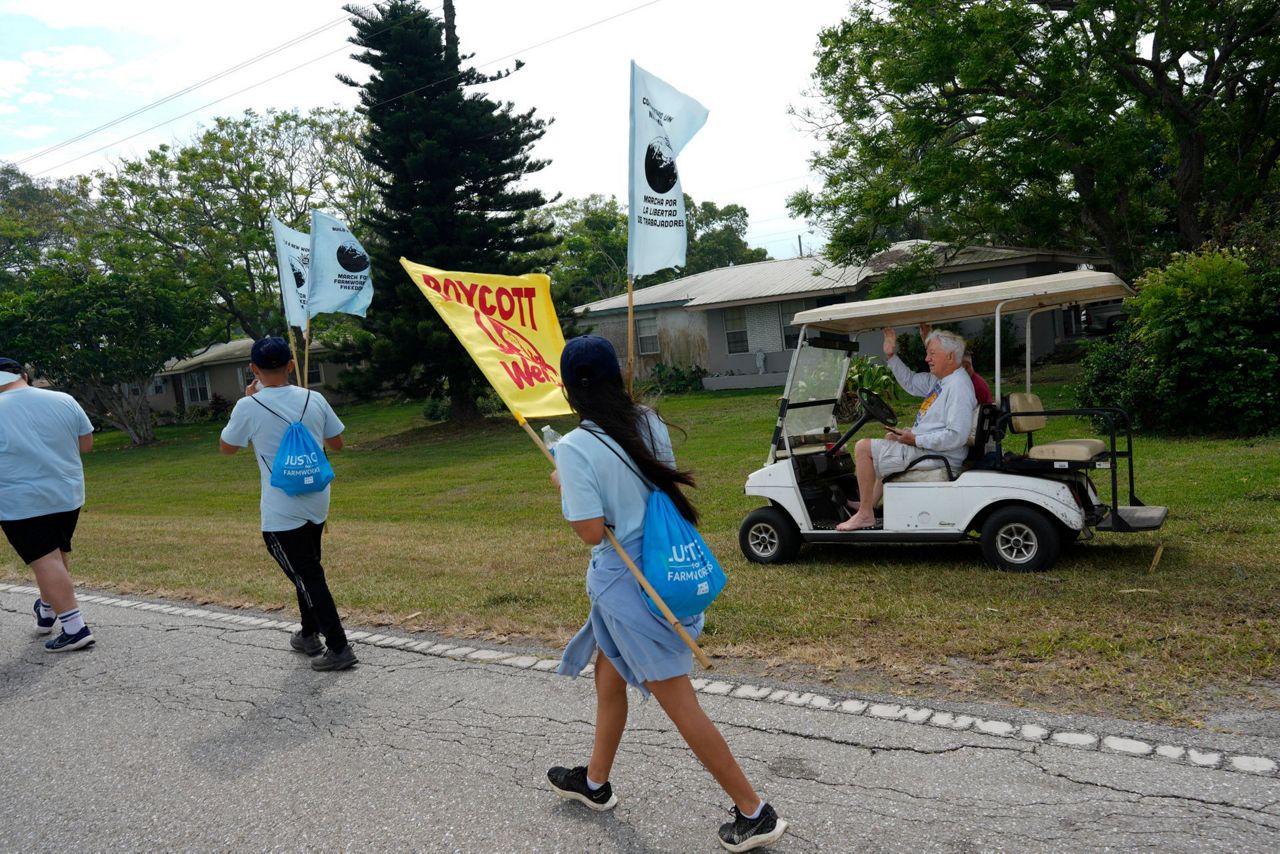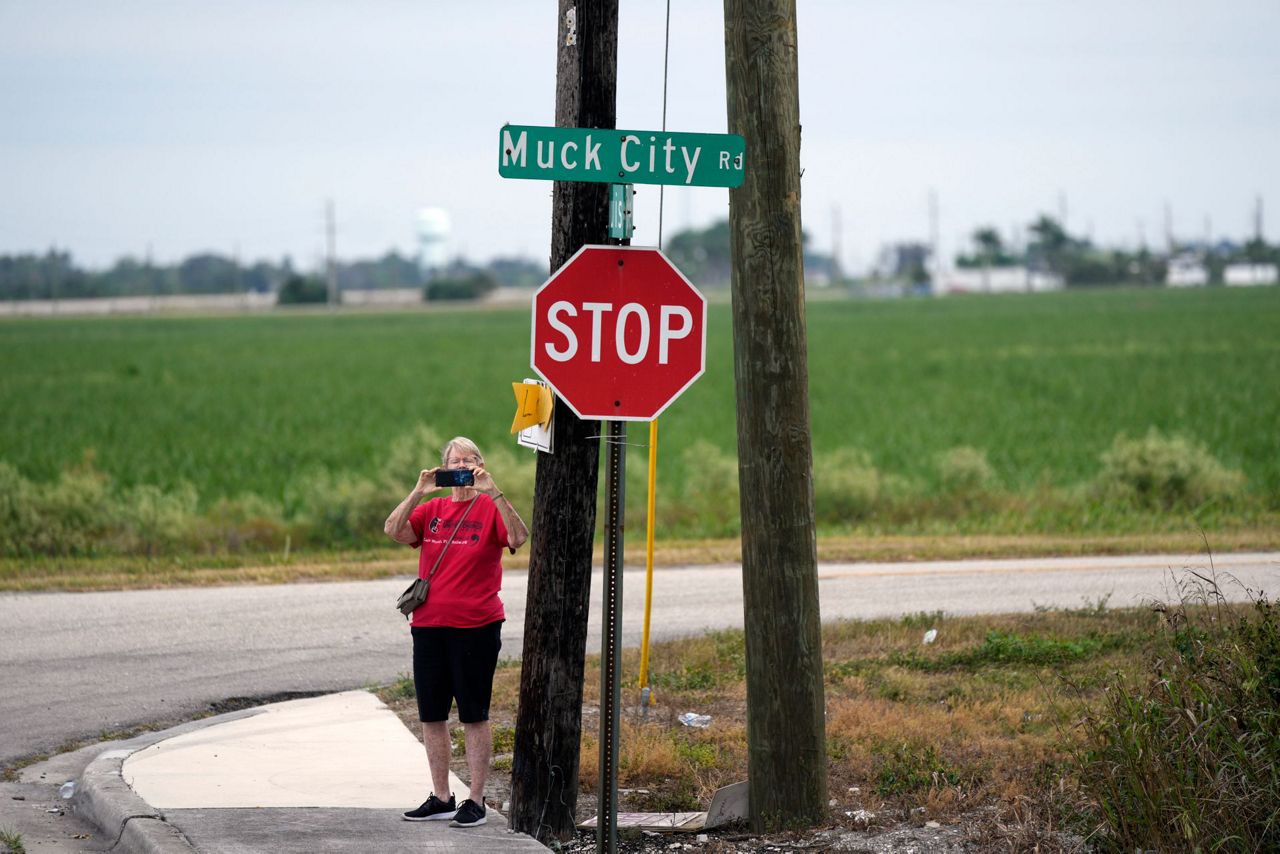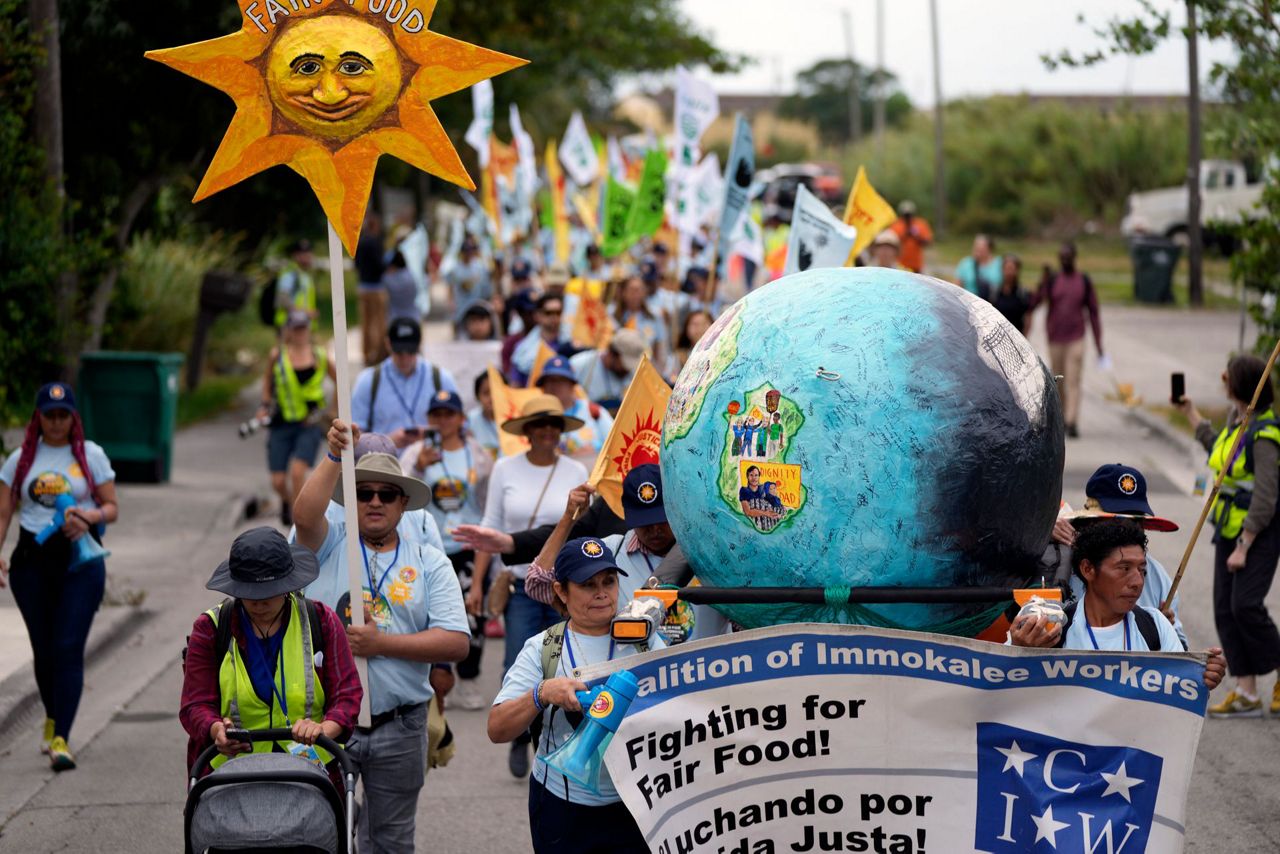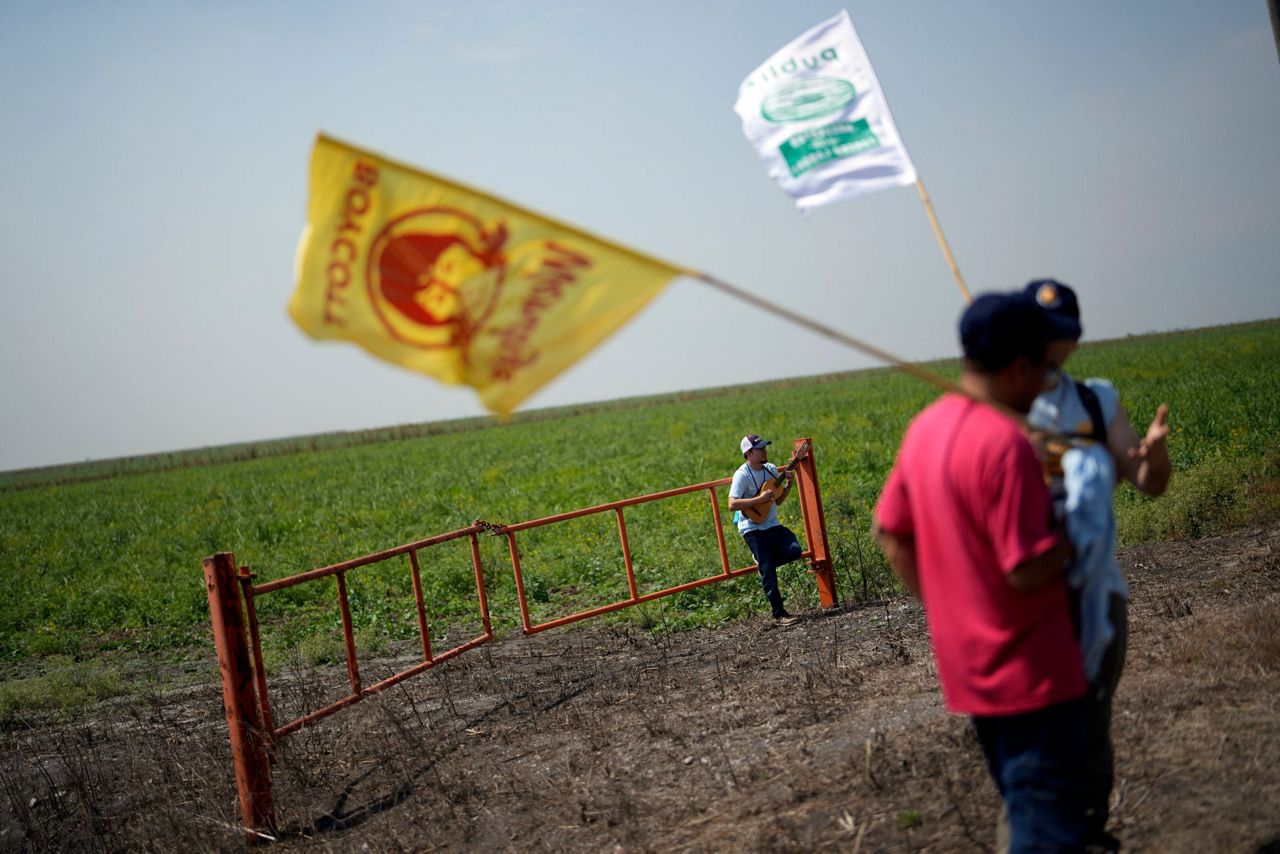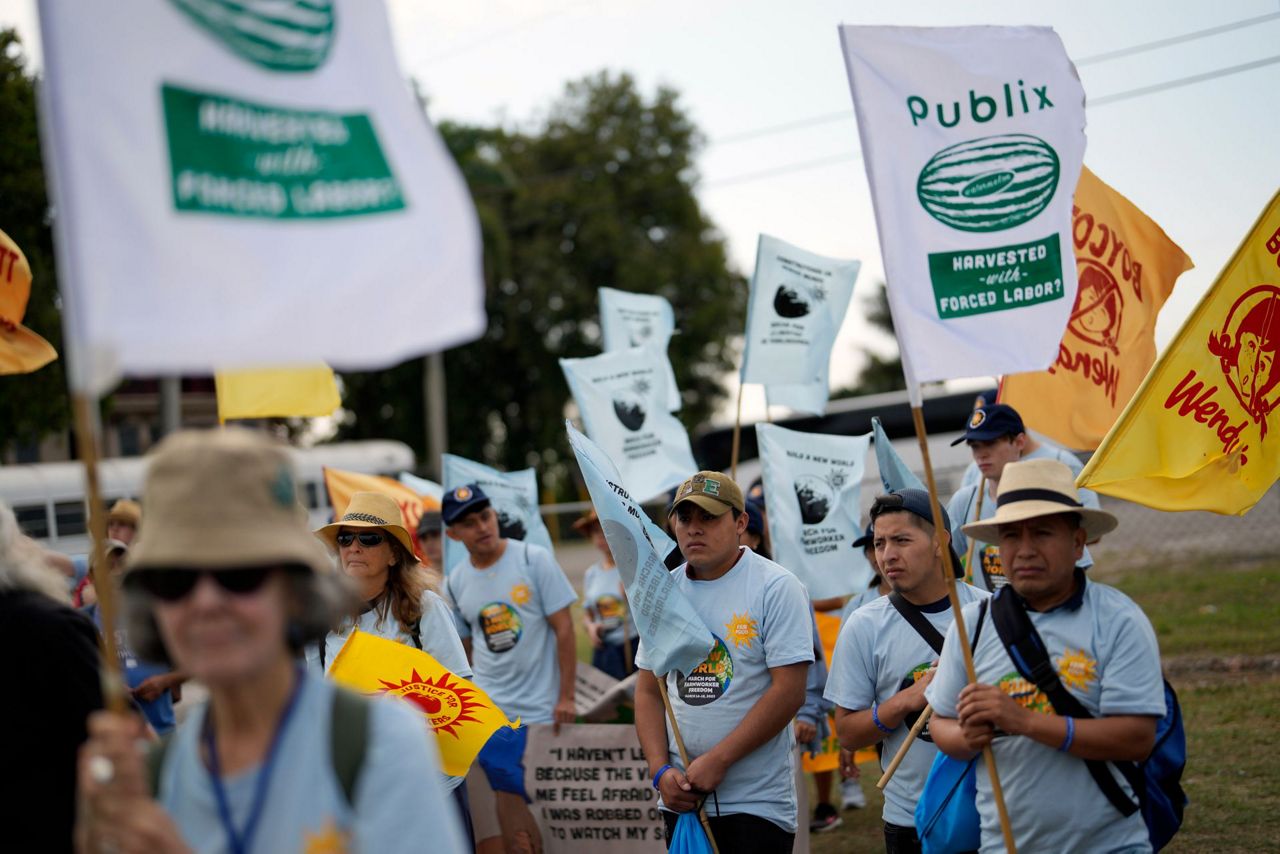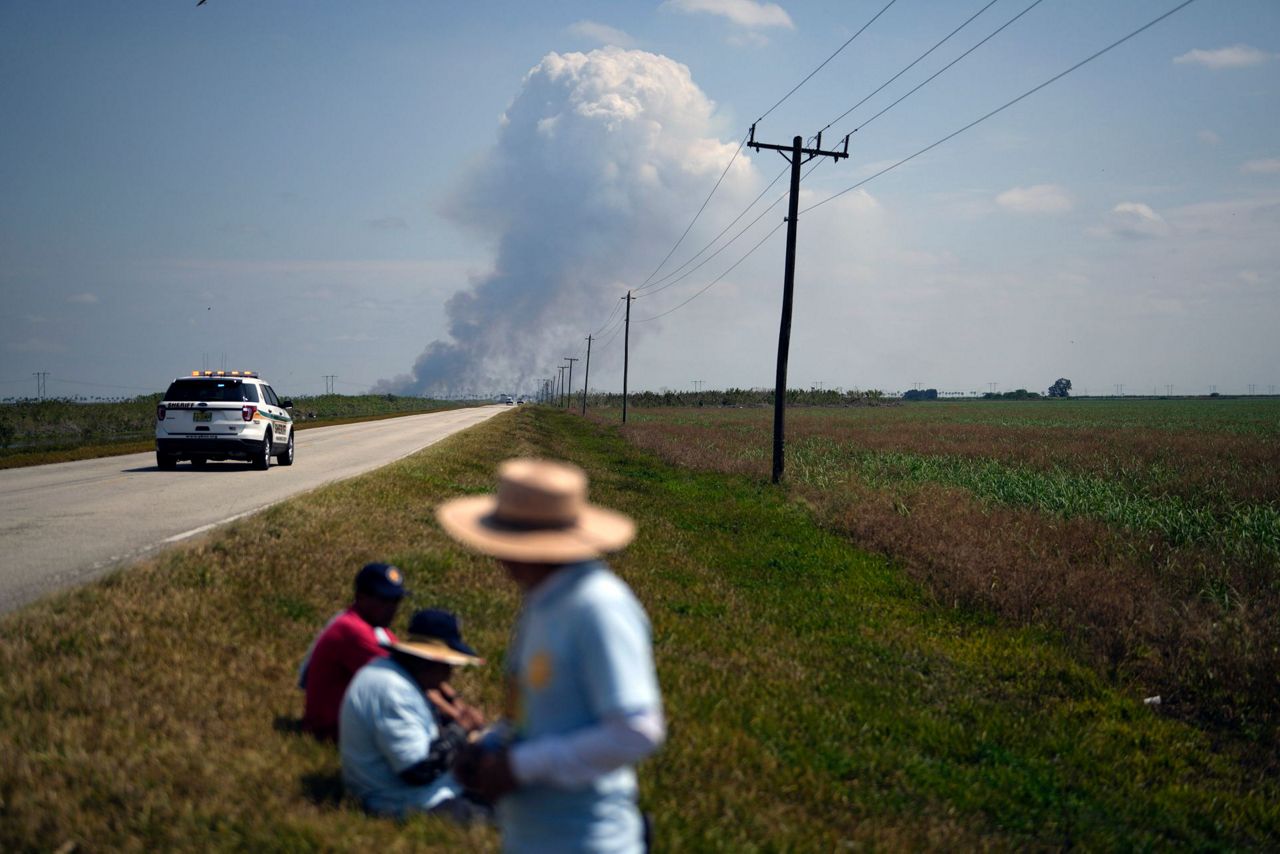Farmworkers were leading a five-day, 45-mile (72-kilometer) trek on foot this week from one of the poorest communities in Florida to a mansion-lined, oceanfront town that is one of the richest in an effort to pressure retailers to leverage their purchasing power for better worker pay and working conditions.
The farmworkers said they were marching to highlight the Fair Food Program, which has enlisted companies like McDonald’s, Walmart, Taco Bell and Whole Foods to use their clout with growers to ensure better working conditions and wages for farmworkers. They hoped to use the march to pressure other companies, like Publix, Wendy’s and Kroger, to join the program that started in 2011.
The march began Tuesday from the farming community of Pahokee, one of the poorest in Florida, where the median household income is around $30,000. The march's launching point was a camp where farmworkers were coerced into working for barely any pay by a labor contractor who was convicted and sentenced last year to almost 10 years in prison. The contractor confiscated the Mexican farmworkers' passports, demanded exorbitant fees from them and threatened them with deportation or false arrest, according to the U.S. Department of Justice.
The marchers were on schedule to arrive Saturday in the town of Palm Beach, which has a median household income of almost $169,000 and is lined with the mansions of the rich and famous, including billionaire Nelson Peltz, who is Wendy's chairman, and former President Donald Trump.
According to the Florida-based Coalition of Immokalee Workers, which organized the march, the program has ensured that farmworkers are paid for the hours they work; guaranteed them on-the-job safety measures such as shade, water and access to bathrooms; and has reduced the threats of sexual assault, harassment and forced labor under armed guards in the fields where tomatoes and other crops are harvested. Immokalee is a southwest Florida farming town in the heart of the state's tomato-growing area.
Growers have benefitted since it reduces turnover and improves productivity, according to the coalition.
Wendy's said in a statement that it didn't participate in the Fair Food Program because it sources its tomato supply from indoor hydroponic greenhouse farms, while the program operates for farmworkers predominantly in outdoor fields, so “there is no nexus between the program and our supply chain.” The fast-food chain said it requires third-party reviews to make sure no abuses are involved in the harvesting of the tomatoes it gets from suppliers.
“The idea that joining the Fair Food Program, and purchasing field-grown, commodity tomatoes, is the only way that Wendy’s can demonstrate responsibility in our supply chain is not true,” Wendy's said.
The coalition on Friday in a statement described Wendy's response as a “dodge.”
Officials from Publix and Kroger didn’t respond to emailed inquiries.
The idea to pressure retailers to use their clout with growers to improve pay and conditions for Florida tomato pickers took off in the early 2000s when the Coalition of Immokalee Workers led a four-year, nationwide boycott of Taco Bell. The boycott ended in 2005 when the company agreed to pay a penny more per pound for tomatoes purchased from Florida growers in order to raise farmworkers' wages.
The Fair Food Program followed several years later in an agreement with Florida tomato growers, and it now includes more than a dozen participating corporations. Leaders of the Coalition of Immokalee Workers and the Fair Food Program have been recognized with a MacArthur Foundation fellowship, a Robert F. Kennedy Human Rights award and presidential award presented by then-Secretary of State John Kerry.
“So now workers enjoy the right to complain without fear of retaliation. Workers also have water and shade as part of these agreements,” said Gerardo Reyes Chavez, a coalition official, at the start of the march in Pahokee. “The program has proven to be the solution, the antidote to the problem of modern day slavery, the problem of sexual assault, and the problems that have always plagued the agricultural industry.”
___
Daniel Kozin in Pahokee, Florida contributed to this report.
___
Follow Mike Schneider on Twitter at @MikeSchneiderAP
Copyright 2023 The Associated Press. All rights reserved. This material may not be published, broadcast, rewritten or redistributed without permission.



